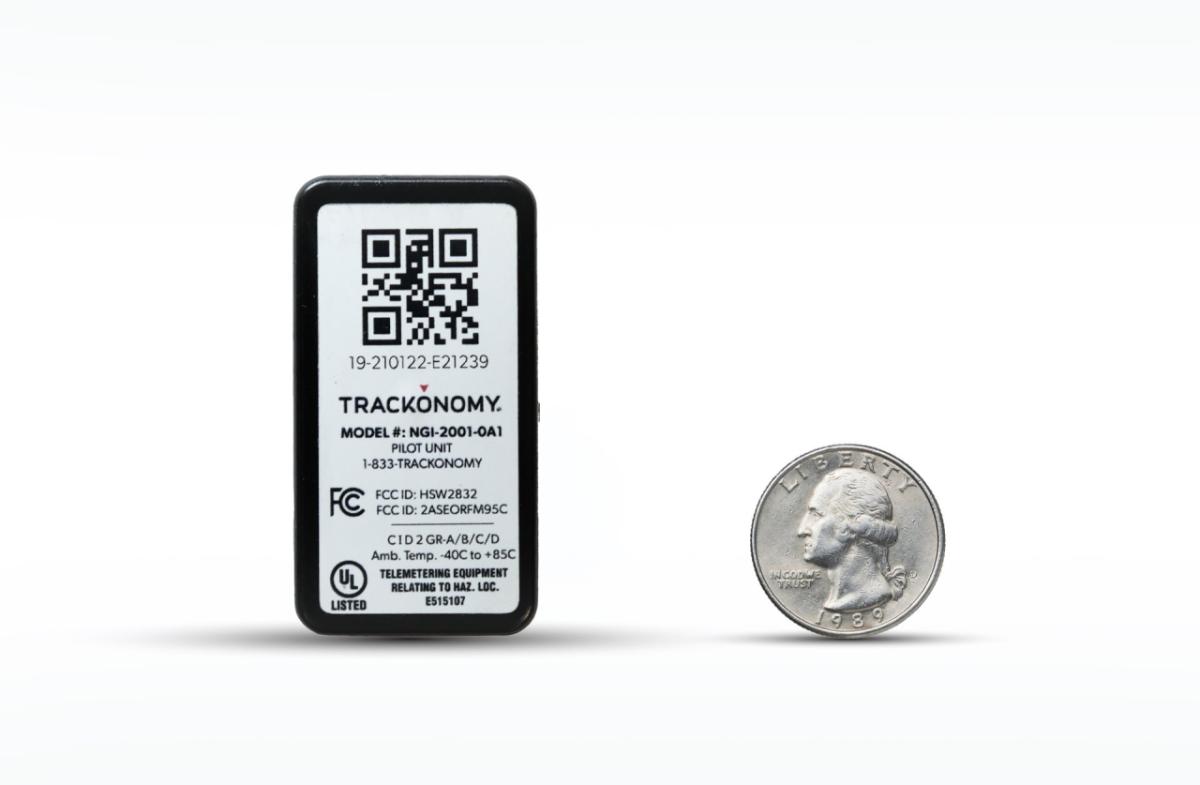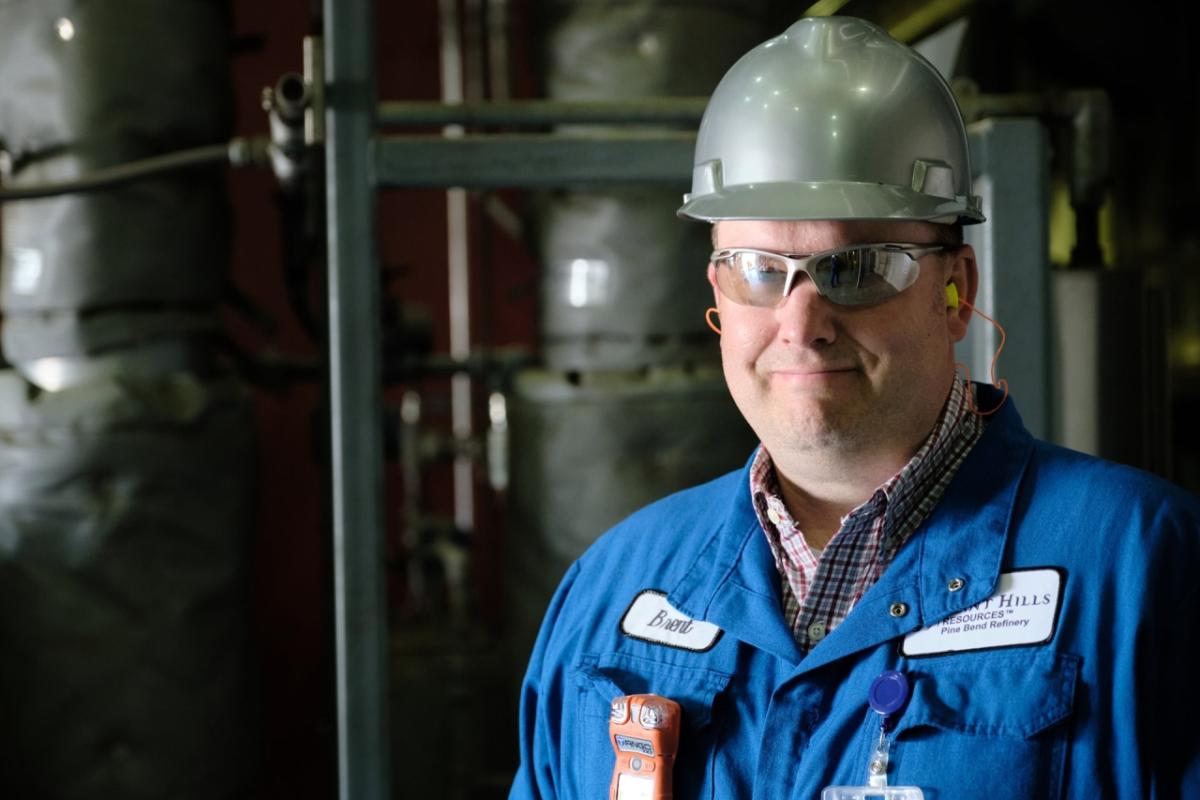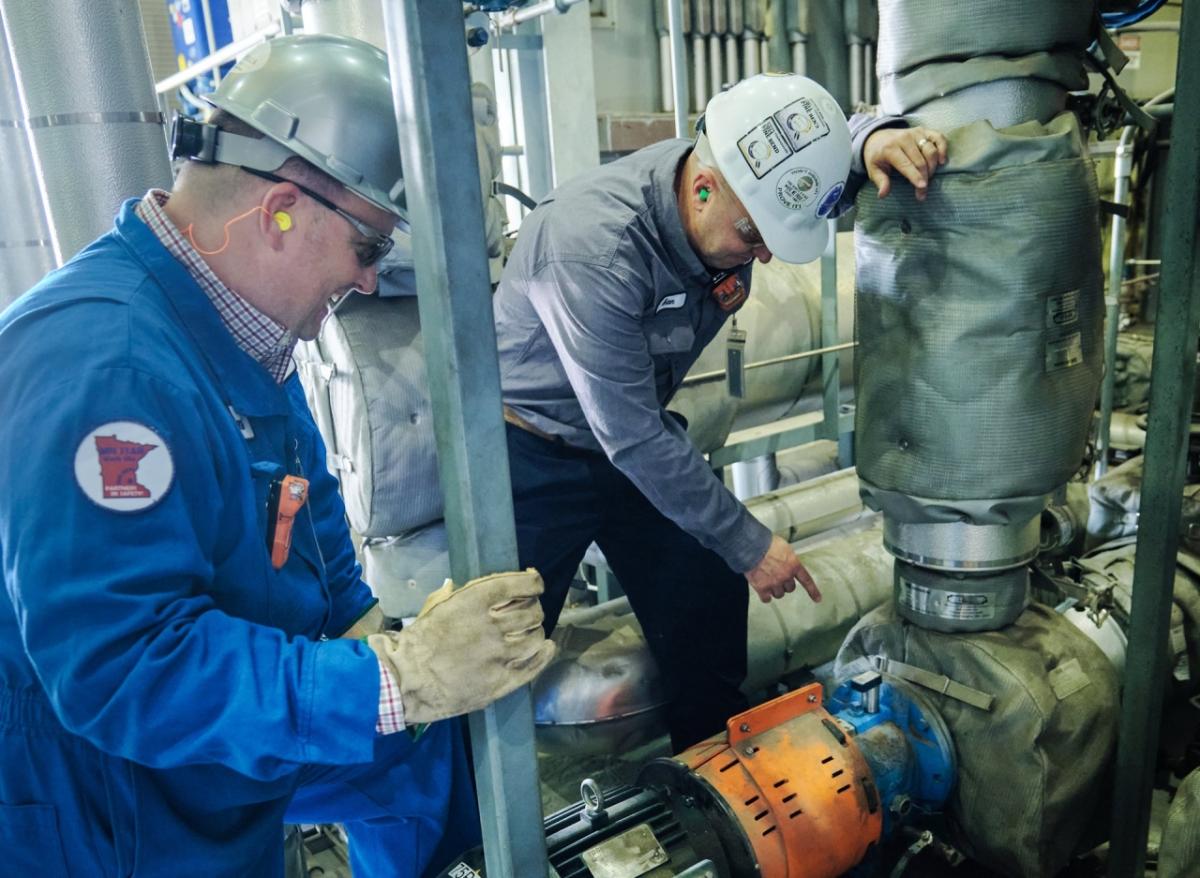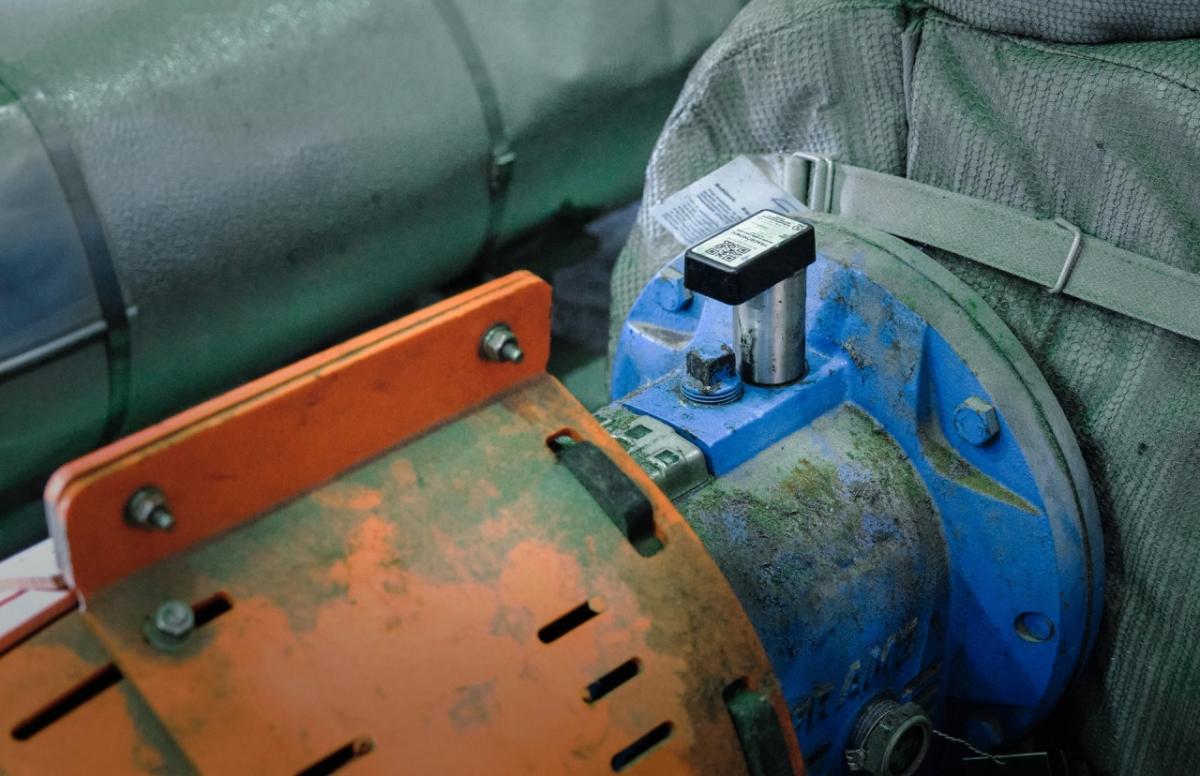'Invisibles' Making Koch Manufacturing Facilities 'Smarter'
This simple-looking piece of tape from Trackonomy can make anything “smart”
On the surface, the small piece of tape looks like a simple adhesive strip, but it’s actually an Internet of Things-enabled device with a critical job – monitoring precious cargo and machinery. The innovation blurs the line between software, logistics and manufacturing with a product that is thin, compact and doesn’t require additional training or infrastructure investments.
Trackonomy smart tape integrates sensors that can track and relay information, such as location, position and temperature. Remote sensors throughout the supply chain wirelessly collect the data and send it to the user, acting as a real-world operating system for people to know the status and condition of an item at all times.
Trackonomy invented the tape in 2017 to revolutionize the logistics industry; however, the customizable nature of the smart tape can turn almost anything into a smart device, providing valuable data so companies can make informed decisions. Trackonomy’s partnership with Koch Industries is giving the company access to a range of real-world scenarios where the tape could disrupt the standard way of doing things. Since 2019, Koch Disruptive Technologies has continued to invest in Trackonomy and engaged with dozens of subject matter experts across Koch companies to test, learn and scale the applications of the smart tape.
INVISTA, a Koch company that makes chemical intermediates, polymers and fibers, is using the sensors to monitor the health and integrity of electrical equipment at two of its facilities in Texas. The 8-inch-long tape can be placed inside of certain electrical equipment without having to turn it off. It then sends periodic temperature and humidity readings, which are used to track changes that could indicate a developing equipment fault or maintenance issue.
“We can use the data to manage our risk by optimizing the preventive maintenance intervals of our assets and ultimately reduce our maintenance costs,” says Daniel Olusola, INVISTA’s reliability electrical capability manager. “You don’t have to wait until a fault develops because you can see the data and proactively act to prevent that potential fault from causing an unplanned event, such as an outage or safety incident."
He says without the sensors the equipment is typically inspected once a year by a qualified person with an infrared scanner. Inspecting the equipment involves donning bulky protective gear – a somewhat uncomfortable prospect in the heat and humidity at INVISTA’s Texas facilities. The yearly inspections take a lot of time, planning and money – and are tedious tasks for employees.
Adding the Trackonomy sensors empowers them to shift their strategy from time-based preventive maintenance to a condition-based maintenance philosophy, with more insight into the health of the equipment and better opportunities for employees to focus on higher value, more fulfilling work.
INVISTA shared its experiment results with other Koch companies in different industries, including Flint Hills Resources and Georgia-Pacific. Despite the diverse nature of their products, they too are now working with Trackonomy to develop and implement ‘smart’ solutions at their facilities.
Georgia-Pacific, for example, will be using Trackonomy sensors to track more than 18,000 shipments of its building products a year. There’s potential to scale that up to more than 100,000 shipments.
At Flint Hills Resources facilities, Brent Sorensen, director of field data solutions and automation, is working with Trackonomy to develop and deploy a vibration sensor that can easily communicate and integrate with their existing network. He says the key advantage of the Trackonomy sensors are their size, simplicity and cost. The more sensors you can buy and deploy, multiplies the tech’s advantages.
“Increasing the number of devices increases the likelihood of us finding anomalies before they become a more serious issue,” Brent says. “You can now monitor more things and get even more insight.”
He says there are tens of thousands of potential locations for sensors at Flint Hills’ facilities. And while they’re just starting out, he sees a lot of potential for this and other products Trackonomy is developing.
“Our vision is, we want to be the operating system of the connected world,” says Erik Volkerink, who founded Trackonomy. “There's a big gap there because everybody is basically building operating systems centered around what they currently do. And IoT is just completely changing things.”
A former professor at Stanford University's School of Engineering and a serial entrepreneur, Erik has dedicated his career to packing powerful technology into tiny form factors. Prior to launching Trackonomy, he was the chief technology officer at Flextronics, a Fortune 500 company dedicated to helping customers across industries develop and manufacture new technology products, including wearables.
When he decided to start his own company, Erik says, he thought about the evolution of the industrial IoT. At its best, technology solves a problem, whether it’s a voice-enabled assistant on a sleek new smartphone or a stylish smartwatch monitoring a person’s heart rate.
“I have worked on wearables and hearables, and we decided what comes next must be ‘invisibles,’” he says. “The first target we wanted to go after was logistics because it’s blatantly obvious that there are huge opportunities to add value.”
To date, Trackonomy has shipped more than 5,500,000 smart tapes. Within Koch companies’ facilities, more than 1,000 monitoring points are installed with more than 200,000 identified to be installed in the future, blending hardware, software and data to let them be “know-it-alls” about every mile of a package’s journey and every minute of a key machine’s operations.
“With the principled entrepreneurs across the Koch enterprise, once they see the technology and the versatility of the applications, their imaginations run wild on the ability to solve previously unsolvable applications,” says Zack Steffen, head of Trackonomy industrial solutions.
Erik says the partnership with Koch Disruptive Technologies extends far beyond a financial investment. Through Koch Labs, he can connect with other portfolio entrepreneurs, subject matter experts and unlock the capabilities of Koch Industries.
“Especially for a young company,” he says, “it's good to have customers that are really strong, in terms of process, in terms of culture, in terms of scaling and all the aspects that make businesses successful.”





